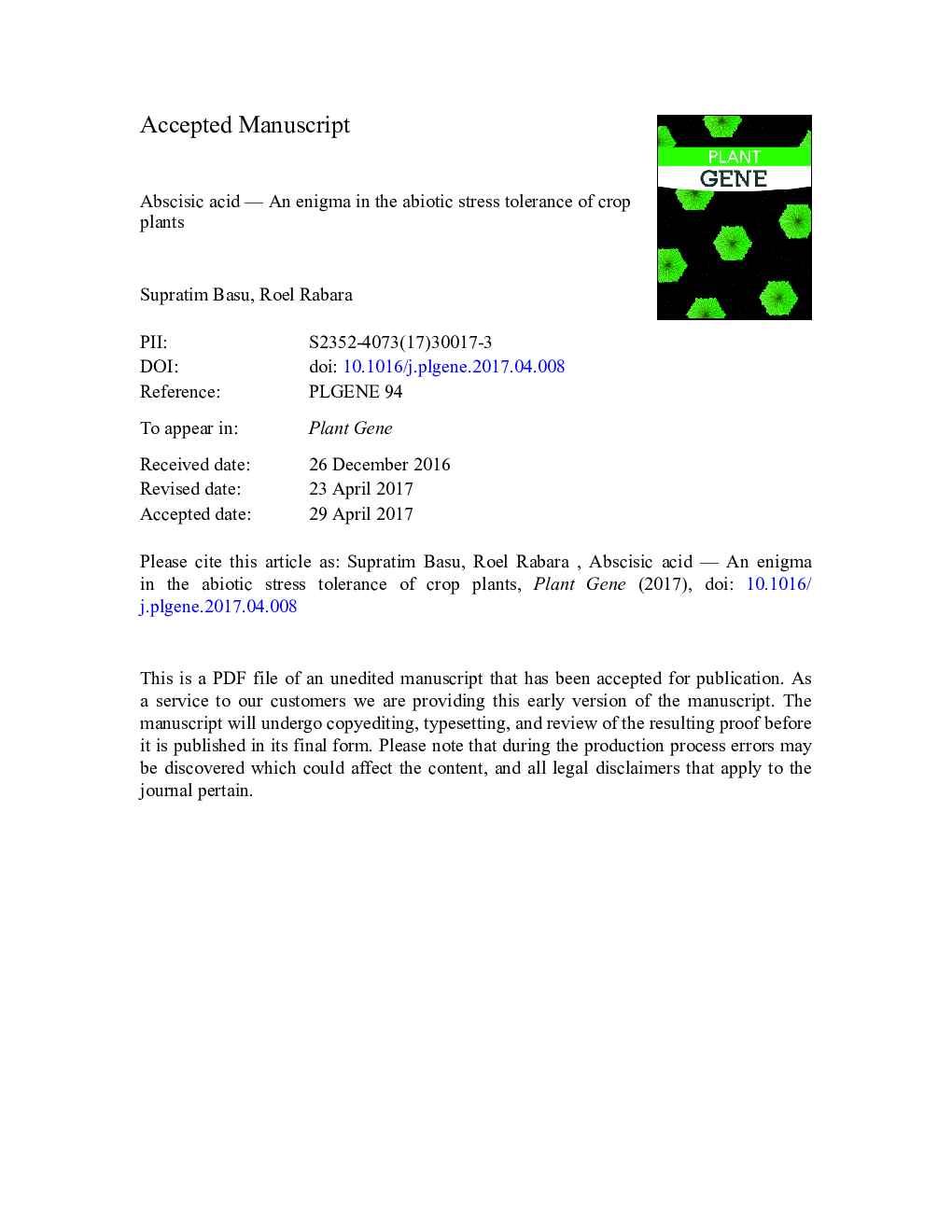| Article ID | Journal | Published Year | Pages | File Type |
|---|---|---|---|---|
| 8647751 | Plant Gene | 2017 | 33 Pages |
Abstract
In the last decade, there has been an increase in the world population at an alarming rate and is predicted to rise over 2.4 billion by 2050. Consequently, to feed the growing population agricultural food production needs to be increased considerably. Worldwide plant growth and productivity are limited by abiotic stresses such as drought, salinity, cold, and heat. To combat the environmental atrocities plants have developed inherent stress tolerance mechanism that involves orchestrated action of several stress-responsive genes comprising of cross-talk with other stress responsive signal transduction pathways. Thus the level of stress tolerance or sensitivity is determined by the severity of the stress and the metabolic status of the plant. To encompass the challenges of understanding the stress tolerance mechanism and develop stress tolerant crops researchers have devised many strategies of which the most preferred had been engineering of the abscisic acid (ABA). ABA provides adaptation to various stresses like drought, salt, and cold stresses and simultaneously regulates various physiological processes ranging from stomatal opening to protein storage. Furthermore, ABA acts as the second messenger coordinating hormonal cross-talk between several stress signaling pathways and thereby leading to adaptations to changing physiological and environmental conditions. The current review will highlight the role ABA in response to abiotic stress both at the molecular level and controlling signal transduction.
Related Topics
Life Sciences
Agricultural and Biological Sciences
Plant Science
Authors
Supratim Basu, Roel Rabara,
